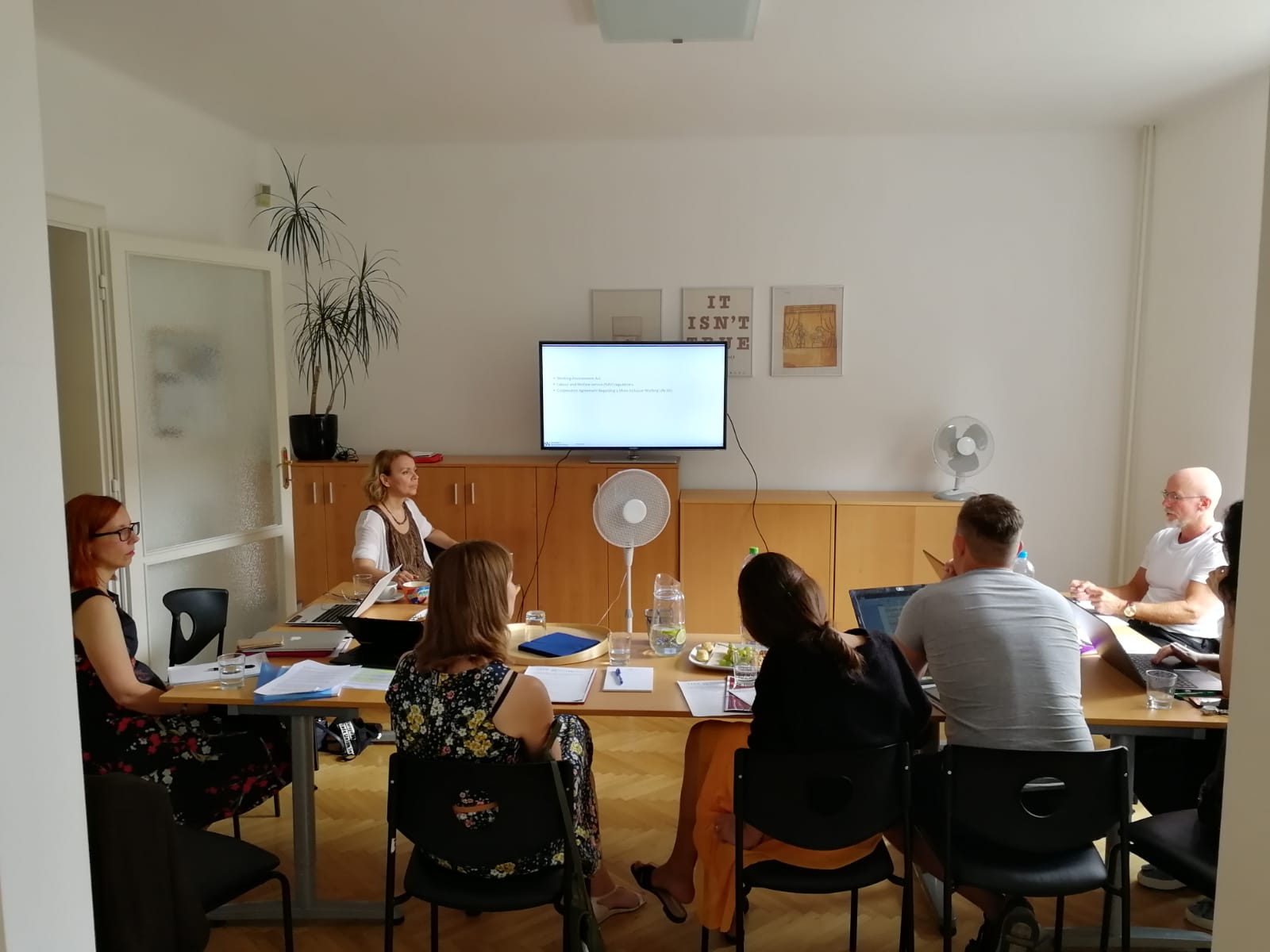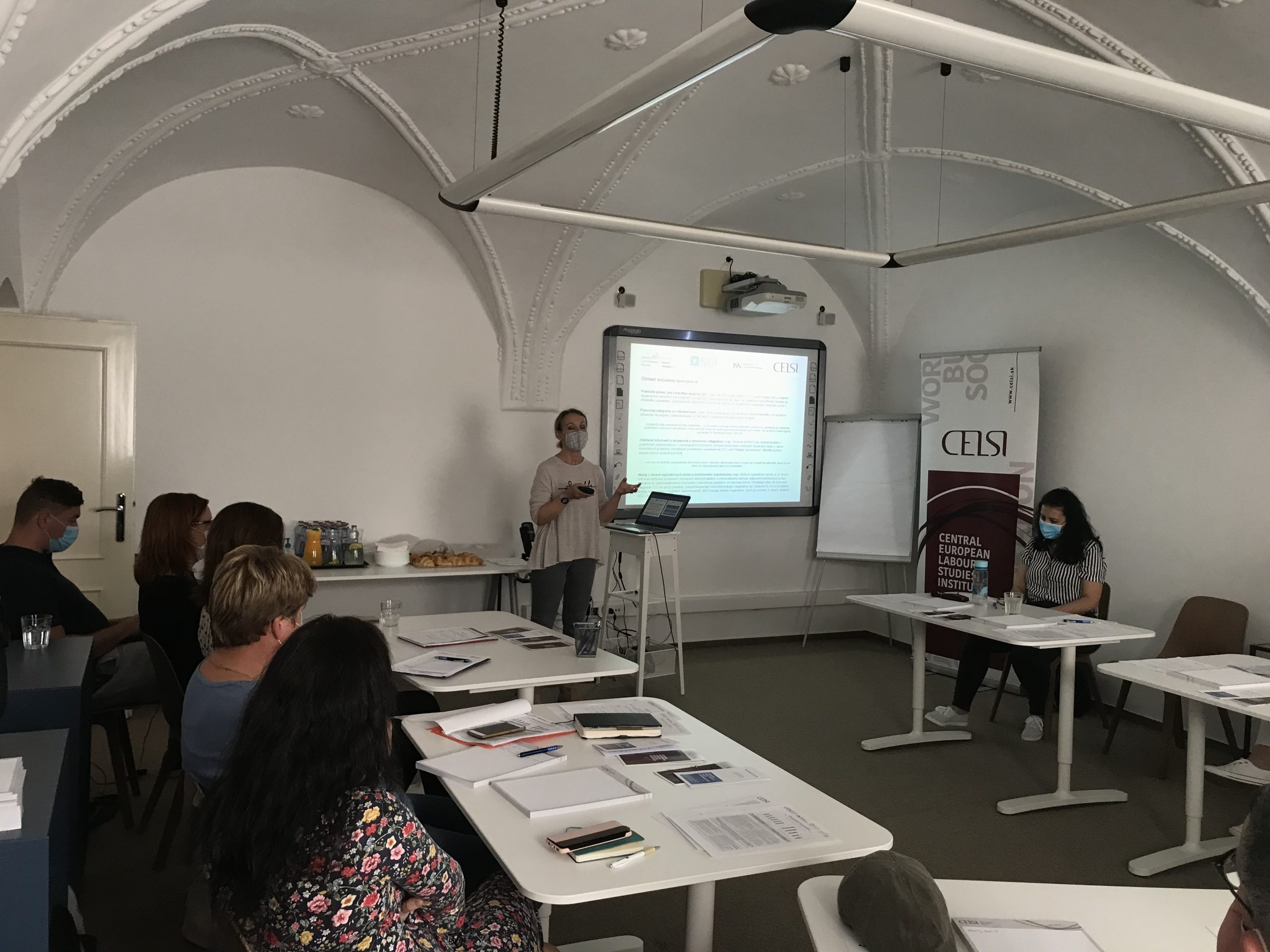I want to work, who can help me?

Project “I want to work, who will help me?” analysed the barriers to employment of disabled disadvantaged people on the Slovak labour market. The aim was to map the implementation practice from the perspective of state and public administration institutions, NGOs, trade unions and employers. We conducted and analysed 35 in-depth interviews with their representatives. In addition to the general group of people with disabilities, we also focused on people with multiple disadvantages: homeless people and people from marginalised Roma communities.
Already during the interviews, it became clear that views and approaches to tackling issues of inclusion of the disabled were very diverse among these organisations. Each institution shared with us its unique knowledge and experience of integration, whether they were companies that employed the disabled or NGOs or governmental organisations that provided them with specific assistance in finding employment or dealing with debt problems. This allowed us to build a comprehensive picture of the barriers to employment for people with disabilities and the ecosystem of institutions and laws in which (dis)employment takes place.
The added value of the project was also the mapping of good practice from Norway, which offered new paradigms in the view of the integration of the disabled. Thanks to the different approach that has been successfully applied for years in this country, we also started to ask questions such as “Would it be possible to integrate the disabled into the labour market immediately and abandon the idea that they have to go through a transition period in sheltered workplaces?” Along with this question came others such as, “In such an integration model, what support would the target group need for integration to be successful?” Good practice from abroad was thus extremely useful to free us and other actors from thinking about older integration models that did not produce the desired results.

A key project activity was the holding of three regional roundtables in Košice, Banská Bystrica and Bratislava, which were attended by representatives of various institutions. They had the opportunity not only to hear and discuss the results of our research, but also to discuss among themselves, and to jointly “diagnose” the problems of integration of the disabled, either in general or at the regional level. Such networking meetings conveniently served as a platform for exchanging contacts, learning about the activities of other organisations and ultimately joining forces to implement solutions.
The project was finally concluded with an international online workshop, to which key actors and policy makers from Slovakia as well as abroad were invited. In addition to our results, it also presented results from a Norwegian study and interesting examples of practice from Denmark and the Netherlands, where concrete and practical steps in the integration of the disabled were presented. In the final study we summarised all the results and formulated recommendations for improving the mechanisms for the integration of the disabled. For those who would not have time to read the whole study, we prepared shorter written outputs in the form of videos and analytical comments.
Although the research project “I want to work, who will help me?” ended in December 2020, its results live on. Not only do we continue to use the findings from the research in our research projects, but we have also presented them on other platforms, such as at the Ministry of Labour, Social Affairs and Family of the Slovak Republic as part of the Working Group on Vocational Rehabilitation and Retraining. The results proved to be interesting precisely because we looked at the problems through the eyes of the whole spectrum of actors and also because we brought different perspectives on integration in the form of good practice and results from abroad.
All outputs, including the Slovak final study, the Norwegian study, short analytical papers, presentations and videos can be found and downloaded here.
About Partners
The Central European Institute for Labour Research is an independent non-profit research institute founded in 2008. It conducts multidisciplinary research on the labour market and its institutions, work and organisations, as well as on issues of ethnicity and migration in the context of economic, social and political life in modern societies. He is involved in a number of major international research projects under EU, Horizon 2020 or EEA and Norway Grants.
The Institute for a Well-Governed Society is a non-profit organisation whose aim is a democratic, open and well-governed society based on cooperation and self-reflection, enabling the free fulfilment of each person’s potential. It contributes to this goal through research and analytical work in the fields of labour market, education, transparency , and policy management at local government level.
University of South-Eastern Norway (Institute of Health and Social Studies) is an educational and research institution and is concerned with working conditions in the context of occupational health, work-life balance, integration of cancer patients and other related topics.
